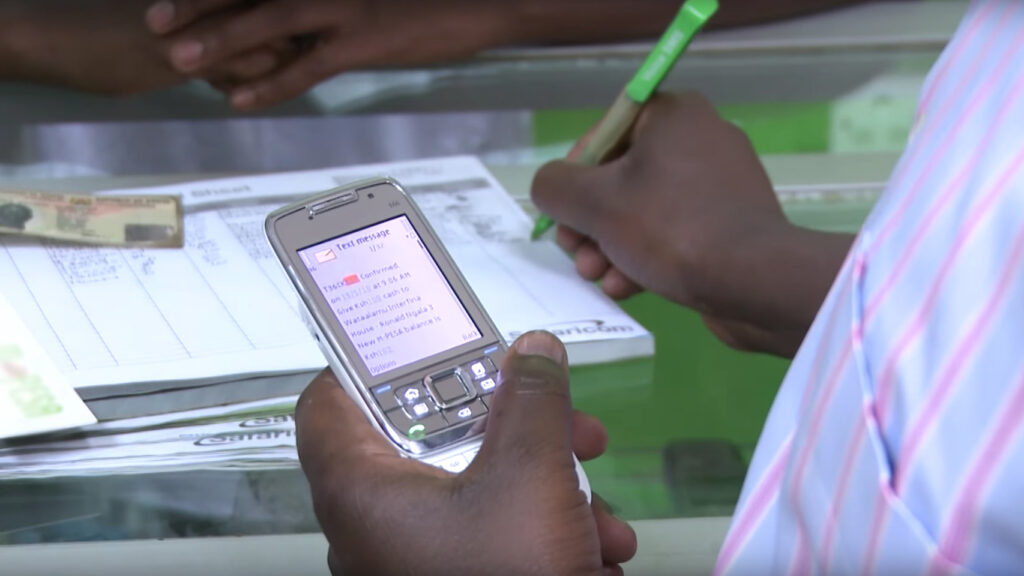
As we (the people) reflect on the implications of the 300 per cent increase in electricity tariff for us and the social and human development sector, notably (education and health), let’s again reflect on how Germany has continued to be a tower of strength to even North America on their unique vocational-technical education construct.
As I was saying last week here, In Germany, the state, too, benefits from the dual system through easing the burden on public budgets by participation of the enterprises and by keeping the workforce up-to-date.
The German dual system has proved its success over a long period, and it still shows its ability to react quickly and effectively to the many changes currently affecting the economy and society.
That is why I am doing this for the benefit of all at the national and sub-national levels – to tackle insecurity, now number-one public enemy.
Germany And U.S Skills Initiative
As part of the business focused first meeting between former Chancellor Angela Merkel and former President Donald Trump back then, three CEO’s of German companies and their respective apprentices met with the two leaders to discuss the benefits of the dual system of vocational training.
The U.S has had to engage Germany, in this conection because the dual system of vocational training in Germany has an excellent reputation worldwide. With more than 350 recognized training occupations nationwide and 1.5 million trainees, the programme has become a disk in the backbone of the German workforce. By combining theory and practice with equal time spent in vocational school and at the place of employment, employees are given a head start in their occupations by exiting their degree with both the required technical knowledge and hands-on experience.
Let’s note this: it isn’t the trainees alone who benefit from the dual system, nor does the burden fall entirely on companies. First and foremost, the programme is structured on financial burden sharing. Private companies bear about 75 per cent of costs, while the Federal Employment Agency and the German federal states handle the remaining 15 per cent and 10 per cent, respectively. Total cost per trainee lands under 20,000 dollars per person. Though it is a short term investment for employers, it produces employees who are specialised in the technical skills needed to fit their company’s needs and is shown to increase employee retention.
Besides, the dual system is not an exclusive option for Germany, and with 3,400 German businesses providing 672,000 jobs in the United States, it is as much in the interest of German employers as American employers to consider the benefits of supporting vocational education stateside. Though investing in the United States is a long maintained and healthy relationship for German businesses, job skills has been identified as a key challenge to their success in the U.S. market.
As such, the key focus of the then Angela Merkel’s first meeting in the White House with President Donald Trump was trade policy. This included a meeting with business people and apprentices in a round-table discussion on skills and vocational training. CEO’s of major German employers in the United States BMW, Siemens, and Schaeffler brought with them exemplary apprentices Marie Davis, Chad Robinson, and Maria Puckett, all of whom have benefited from the German model of vocationa training.
Let’s study the profile of the three specialists who benefited from this diplomatic deal on skillset exchange programme:
Chad Robinson – came to Washington as a representative of the apprenticeship program at Siemens gas turbine plant in Charlotte, North Carolina. Now an apprentice machinist, Chad said he initially received pushback from family that favored a traditional four year degree. However, when Chad was presented with the offer of a debt-free education and guaranteed end-of-program employment from Siemens, the offer was too good to refuse. Chad plans to continue his education at the end of his apprenticeship, continuing on to get a degree in engineering—a degree that his employer plans to financially support. When asked what he wishes more people knew about working at a plant, Chad said, “I wish they knew that plants or working in a trade isn’t a ‘dirty’ profession. In fact, Siemens is spotless and modern—much cleaner than my room!” He also wanted others to understand that, like any career path, there were as many options for him to work his way up in his field.
Marie Davis of Cheraw, South Carolina – came to Schaeffler by way of the U.S. Air Force. After serving for four years, she came home and was accepted into the Schaeffler Apprenticeship Program. The three year program involved both classroom and hands on experience and was completed in conjunction with Northeastern Technical College. Marie said she was originally exposed to the option of vocational training in high school and by an uncle who owns a machine tool company in Illinois. Having always enjoyed working with her hands, the program was a natural fit.
of BMW’s famous Spartanburg, South Carolina facility originally auditioned for American Idol to pursue a music career upon high school graduation. After a friend exposed her to the apprenticeship program at BMW, she learned that she had just as much of an aptitude and passion for technical work. Maria said she loves representing women in a traditionally-male field and that she’d like to reduce the stigma in the United States of receiving a technical education and promote those options to local high schoolers.
Maria Puckett of BMW’s famous Spartanburg, South Carolina – facility originally auditioned for American Idol to pursue a music career upon high school graduation. After a friend exposed her to the apprenticeship program at BMW, she learned that she had just as much of an aptitude and passion for technical work. Maria said she loves representing women in a traditionally-male field and that she’d like to reduce the stigma in the United States of receiving a technical education and promote those options to local high schoolers.
The three apprentices and CEO’s sat at a round table with other business leaders, journalists, and the two heads of government to elaborate on how they have personally and professionally benefited from vocational training. President Donald Trump had then stated in his press conference with Angela Merkel, “We just concluded a productive meeting with the German and American companies to discuss workforce development and vocational training. Germany has done an incredible job training the employees and future employees and employing its manufacturing and industrial workforce. It’s crucial that we provide our American workers with a really great employment outlook.”
Given time and exposure to alternative career paths, American employers—especially those in manufacturing are likely to find vocational training to be a win-win for employer and employee.
This development was triggered by a development that leadership in both countries Germany and United States didn’t ignore on human development indices: Some companies in America that are finding it difficult to hire and retain qualified industrial workers are looking to the German skills training model for inspiration, according to a Wall Street Journal article at the time.
“Two million U.S. manufacturing jobs will remain vacant over the next decade due to a shortage of trained workers, according to an analysis by the Manufacturing Institute, a nonprofit advocacy group affiliated with the National Association of Manufacturers, and professional-services firm Deloitte LLP.”
In Germany, the dual system of classroom learning and on-the-job training is used to train skilled workers in everything from manufacturing to hospitality. Young people decide before they leave school whether to pursue the trainee track or a college track. Trainees are paid by the company during their apprenticeship years and are often hired by the same companies. Uniform national standards and testing ensure that trainees who complete the programs can transport their skills to other companies.
The article specifically looked at the work of the Illinois Consortium for Advanced Technical Training (ICATT), which is working with the German-American Chamber of Commerce to get American companies in the region to adopt a German-style training system. Organisations in other states, specifically Michigan, Kentucky and Georgia, are also working with the German-American Chamber of Commerce.
The German Embassy in Washington launched the Skills Initiative in 2014 to share German best practices in skills training in America. The effort to bring more German-style training programs to the US got a boost in 2015 when the German Federal Ministries of Education, Economic Affairs, and Labour and the US Departments of Commerce, Labour, and Education signed a Joint Declaration of Workforce Training, which outlined the shared belief of the importance of technical education while strengthening ties between the nations.
I think this is what we should get our diplomatic missions to do wherever we post them. They are not there to sit down in the offices to expect allowances from Abuja. What are Nigeria’s missions in Germany, Japan, South Korea, China, Mexico, Sinpapore, Thailand, Indonesia, UAE, Turkey etc doing for the advancement of knowledge and skills needed to develop our country at this time?
What do we get to exchange with even our neighbours in West Africa, notably Benin Republic, Togo and Ghana where our building project artisans are being sought by our builders? Can’t we swallow our pride and vanity and collaborate with them and relearn from them what they have done to sustain their Technical Schools?
Without prejudice to the backgrounds of those who teach arts and social science subjects (where I belong), it is imperative that our ministries and education and education policy development experts put heads together on how to reward science and technology teachers in primary and post primary schools. That is where we rise and fall in this age. Those who teach (science, technology, engineering, mathematics (STEM) subjects should be encouraged to take degrees and National Certificates in Education (NCE) in all the science subjects not as second option.
The trouble with our education system has been that our children are now being forced to take up education faculty degrees when they can’t get admission to read the popular courses such as Law, Medicine, Journalism, Accounting, Pharmacy, etc. This is tragically so because in this place no one wants his or her wards to read a teaching subjects where we ask teachers to wait for their rewards in heaven. This is where so many Scandinavian countries, notably Finland have taught the world to get quality of manpower from the quality of teachers they reward far above other public servants.
Specifically, science and technology hold the key to the progress and development of any nation even at this time. Tehnology plays a fundamental role in wealth creation, improvement of the quality of life and real economic growth and transformation in this 21st entury that social technologies daily shape.
So, the Tinubu administration that is upbeat about first year in office this month, should call for experts to help the Ministries of Education, Science and Technology to develop the framework for robust investments in science and technogy teachers. The authorities in Abuja should also renew their minds about the expediency of re-equipping the universities for the challenges of 21st century research and development. Again, why should a country that desires development continually fight its university teachers who call for improvements in offerings for research and development?












